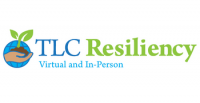By Robert Goldman, Psy.D., J.D. and Jaclyn Gordon
Such are the expectations many employers have of their employees. However, how realistic is it to shut your mind from focusing on the stressors of life? Wellness requires effort. From our evolutionary instincts, the mind will often focus on the negative events in our life and ruminate on the worse case scenarios.
While it is understandable that an employer does not want their employees’ personal life to interfere with their job performance, it is normal for this to happen. The employer does not want the employee to feel unsupported or apathetic, but at the same time, they want to get the job done.
This sets up a very unhealthy dynamic in the workplace. Employees will often try their best to power through their stressors for fear of termination of being stigmatized. This avoidance will often result in their attempt to deny or hide their difficulties from the employer. By attempting to hide their personal struggles at work, they may develop unhealthy coping patterns, such as substance abuse, that have negative consequences on their work.
According to the research, failure to acknowledge an employee’s mental health can have a negative impact on productivity and professional relationships. It has been estimated that $17 to $44 billion dollars are lost to depression each year. Conversely, $4 is given back to the economy for every $1 that is spent tending to one’s mental health.
As more people are working remotely, it is harder for the employer to feel the “pulse” of the employee. Therefore, making the employees’ ability to mask their struggles that much easier and causing the problem to persist. It may also be more difficult for the employee to set up healthy boundaries between themselves and the workplace. How do you leave your sh*t at home, when you are working from it?
Once these unhealthy coping patterns can no longer be hidden, it becomes a crisis situation and the employer is forced to react. The employer may make a referral to the employee assistance program or may terminate the employee.
Like most approaches to problems, we wait too long to act. If we know that wellness is an effort, then we need to create a psychologically safe place where we offer employees resiliency strategies, so that they are better equipped to cope with the inevitable stressor.
While the road to resiliency may be paved with good intentions, having a one-time seminar or a retreat on workplace wellness does not solve the problem. It may check off the box for human resources, but it does not create a culture of resilience. Our brains have been wired to worry. A competitive workplace environment can reinforce the need to worry. As a consequence, It will take more than two hours to undo that which we are often compelled to do. Resiliency training needs to be offered consistently and the curriculum tailored to meet the unique demands within the particular industry.
It is also best that this is delivered in a group environment so that the employee feels supported and not stigmatized. Such programs should be offered virtually for those employees who are working remotely.
When our culture is willing to accept that struggling is part of normalcy, then we can have an honest discussion about our approach to mental wellness in the workplace. As more of us are speaking to our struggles, I am hopeful that we are getting closer to having that conversation.
Jaclyn Gordon is a fourth-year doctoral student in Hofstra University’s School-Community Psy.D. program.

